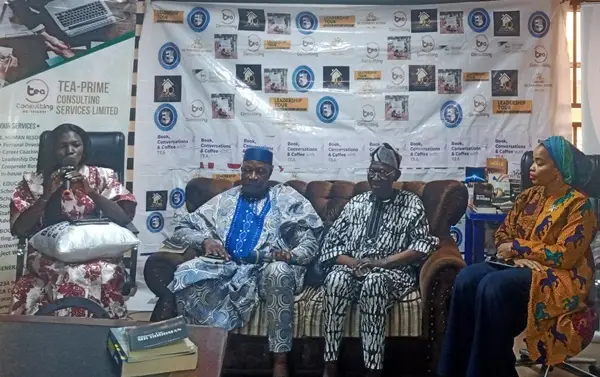News Investigators/ Literary icons and other stakeholders in the creative sector have urged Nigerian artistes, authors and other creatives to use their works to address societal ills and promote peaceful coexistence.
They made the call in an interview with the News Agency of Nigeria (NAN) on Saturday at the quarterly literary talk show “Book Conversations and Coffee with Tea” in Abuja.
The show is a flagship programme of Tea-Prime Leadership Academy, an NGO that focuses on creativity, culture and leadership for personal and national development.
The theme of the third quarter edition of the event is “Creativity vs Global Crisis: Opportunities for Creatives, Policymakers and Diplomats.”
According to the stakeholders, creative works are a veritable instrument for societal change and peace building if deployed effectively.
They urged Nigerian creatives to be intentional in using their works to address societal issues, hold leaders accountable and build an egalitarian society.
Dr Emmanuel Ojukwu, a prolific writer and former Commissioner of Police, said creatives have crucial roles in reshaping society towards achieving its destiny.
Ojukwu, the Provost of Police Public Relations School, urged Nigerian writers and artistes not to be detached from societal challenges, such as economic hardship, bad leadership, insecurity and others.
“There are so many issues facing our country, and that is why creatives should be the eyes, the voice and should be the minds of people.
“People don’t need to bottle up their problems and die in the process or go into depression, and that is why they must express their feelings, but not by destroying properties.
“Writers and other creatives can ventilate their concerns and ideas through different platforms such as satire, allegory, drama, and it could be in your fashion and in your painting.
“The problems of Nigeria are our collective problems, and together we have to solve them so we can keep our flag flying.
“Creatives, writers, and readers alike have a responsibility to vent their grievances in the proper form, and writing, painting, music are all forms of self-expression”, he said.
Amb. Albert Omotayo, author and former Nigerian envoy to Mozambique, said writers and other creatives were people driven by passion to make a difference in society by using their works to reshape the nation.
He, however, urged Nigerian writers and artistes to uphold cultural identity in telling their stories to the rest of the world.
“If you are original, it makes you authentic and you will earn respect and trust, and people will want to do business with you, they will commit things to you.
“The world is tired of what is going on, and now people want to listen to our story so our originality is what attracts the right people and audience to us.
“Because the world is so stale, so boring, but there is excitement from Africa, there is sunshine coming out of Africa”, he said.
Bella Ndubuisi, a Cultural and Public Diplomacy Professional, advised Nigerian writers to remain authentic for their stories to remain unique on the global stage.
“We just need to be reminded that you can’t be more Western than the Western people, and you can’t tell the story of the West more than the West can tell their story.
“The story you’re going to be more effective at telling is the story that you know, so you’re going to be the best at telling that story than anyone else.
“That is why it is important that you go back within, go back on the inside, go back to culture, and go back to the way that you know, way of your life, way of your people’s life.
“Because nobody can tell that story more than you, because you’ve lived it,you’ve experienced it, it’s been part of who you are for a long time”, she said.
In her remark, Esther Adelana, founder of Tea-Prime Leadership Academy and host of the show, said it was an opportunity for budding talents to get mentored.
Adelana, who is the Public Relations Officer of the Association of Nigerian Authors (ANA), FCT chapter, said the show was a meeting point for seasoned authors and other professionals to share experience with the younger generation.
“We talk about leadership development, creativity, and culture, and how younger ones can tap into the creative economy for profitability, impact, and influence.
“That is why we decided to host this particular talk show on creativity and global crisis, looking at the opportunities for creative policymakers and diplomats.
“We have people who are not well-clarified about why they are doing what they are doing or how they can monetise their creative skills.
However, this meeting has helped them build their capacity and also the courage to reach out to people and widen their impact”, she said.
NAN


